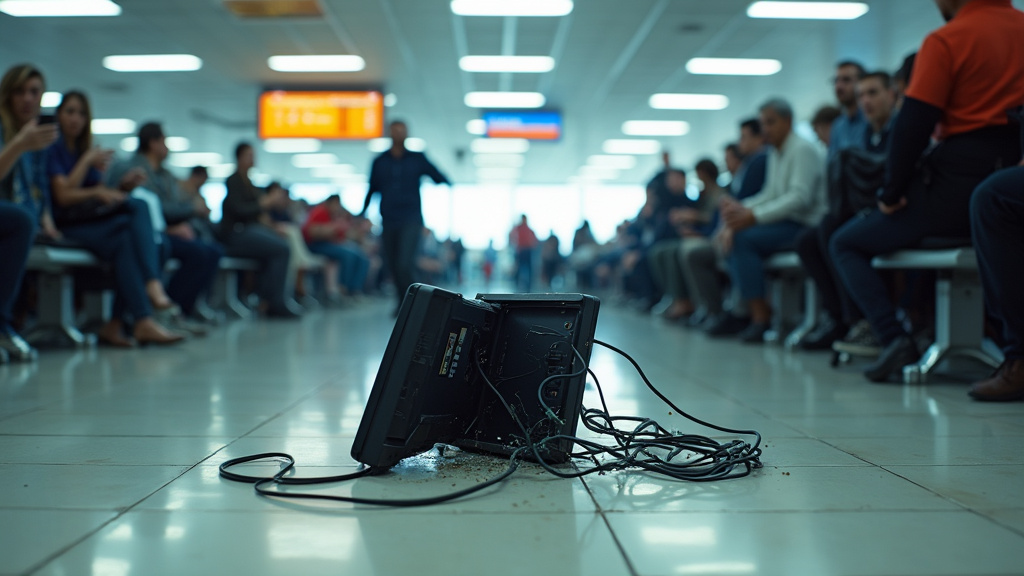Seven members of the Texas National Guard have been recalled from a deployment to Chicago due to concerns over their physical fitness, following the circulation of a viral photograph that drew widespread mockery. The incident highlights a renewed emphasis on military readiness and adherence to stringent standards, a push championed by Defense Secretary Pete Hegseth.
Viral Photo Sparks Public Outcry and Scrutiny
The controversy ignited when a photograph, taken by Associated Press photographer Erin Hooley, depicted several Texas National Guard soldiers unloading from a military truck near Chicago. The images showed some troops who appeared to be carrying excess weight, leading to rapid dissemination across social media platforms. This visual sparked considerable online derision, with social media users employing terms like “Meal Team Six” and “Operation Dessert Storm” to mock the soldiers’ appearance. The timing of the viral photos was particularly pointed, occurring shortly after Defense Secretary Pete Hegseth publicly criticized the presence of “fat troops” and “fat generals” as detrimental to the military’s image.
Fitness Standards Under the Microscope
In response to the viral images and the ensuing public commentary, the Texas National Guard confirmed that seven service members were recalled to their home stations. A spokesperson for the Texas Military Department stated that these individuals “did not meet mission requirements” during the “pre-mission validation process.” This action aligns with the National Guard Bureau’s standing policy, which mandates that all soldiers and airmen must consistently meet service-specific height, weight, and physical fitness standards. Sources indicate that the rapid mobilization for this deployment, ordered by President Donald Trump, necessitated a swift validation process, during which a small number of troops found to be non-compliant were identified and replaced. The Texas National Guard echoed Secretary Hegseth’s message, emphasizing “high, uncompromising, and clear” standards for its personnel.
Deployment to CHICAGO: Mission and Controversy
The recalled troops were part of a larger contingent of approximately 200 Texas National Guard members deployed to the greater Chicago area. This deployment was initiated by President Trump as part of a federal operation aimed at protecting U.S. Immigration and Customs Enforcement (ICE) personnel and federal property amidst escalating tensions and protests related to immigration enforcement. The rapid nature of the deployment, reportedly occurring within 24 hours of receiving orders, bypassed the more extensive Standardized Reintegration Program (SRP 1) screening process, which typically takes several days to complete. The deployment itself faced significant opposition from Illinois Governor J.B. Pritzker and Chicago Mayor Brandon Johnson, who objected to the federal intervention and filed legal challenges seeking to halt the troops’ activation. While a federal judge initially issued a temporary restraining order, an appeals court later ruled that the troops could remain in Illinois but could not be actively deployed.
Hegseth’s Push for Higher Standards
Defense Secretary Pete Hegseth has been a vocal advocate for enhancing physical fitness and discipline across all branches of the U.S. military. Following the incident, Hegseth publicly praised the Texas National Guard’s swift action, posting on X (formerly Twitter) that “Standards are back at The @DeptofWar,” alongside a headline reporting on the troop recall. Hegseth has previously announced a series of directives aimed at reinforcing military standards, including mandatory biannual physical fitness tests for active-duty troops and a requirement for daily workouts. His stance emphasizes a return to rigorous physical conditioning, a sentiment that appears to be resonating through military commands.
Broader Military Realignments Signal Focus on Efficiency
This recall incident occurs amidst a broader strategic realignment within the U.S. Army, also influenced by efforts to streamline operations and enforce stricter standards. Army North and Army South are in the process of merging into a new Western Hemisphere Command, slated to be headquartered at Fort Bragg, North Carolina. This consolidation, part of an initiative led by Hegseth, aims to reduce headquarters staff and enhance efficiency, refocusing the force on lethality and homeland defense. The convergence of these events underscores a period of increased scrutiny on military readiness, fitness, and operational effectiveness across the armed forces.
Conclusion: A New Era of Accountability
The recall of seven Texas National Guard members serves as a clear message about the current administration’s commitment to upholding rigorous fitness standards. The VIRAL photo and subsequent public reaction, coupled with Secretary Hegseth’s outspoken advocacy, have brought renewed attention to the importance of physical readiness. As the military navigates these changes, the emphasis on accountability and maintaining high standards is evident, signaling a potential shift in how military deployments and personnel are evaluated. This NEWS serves as a HEADLINE example of the heightened expectations placed upon service members in today’s operational environment, especially in critical areas like CHICAGO.














